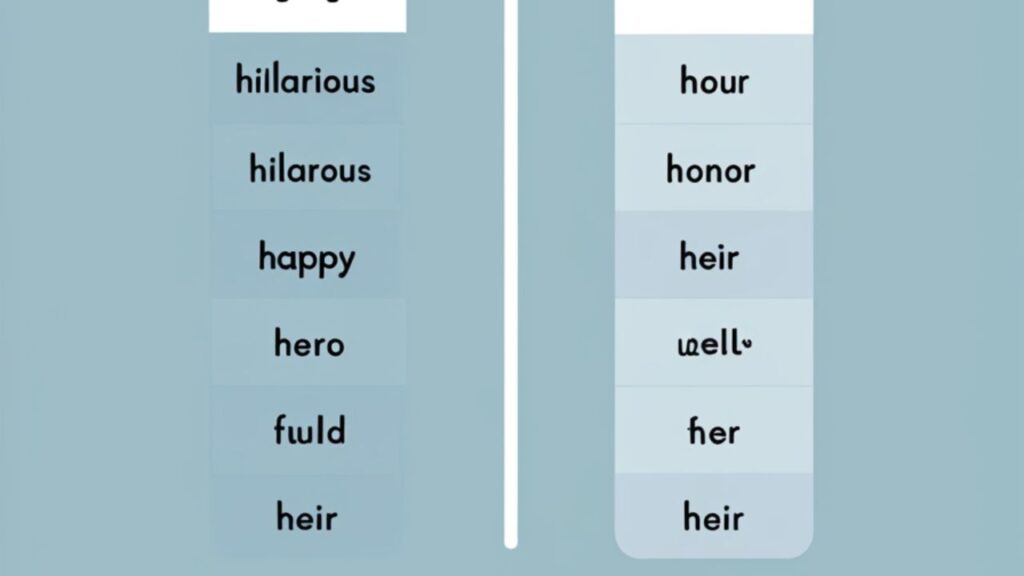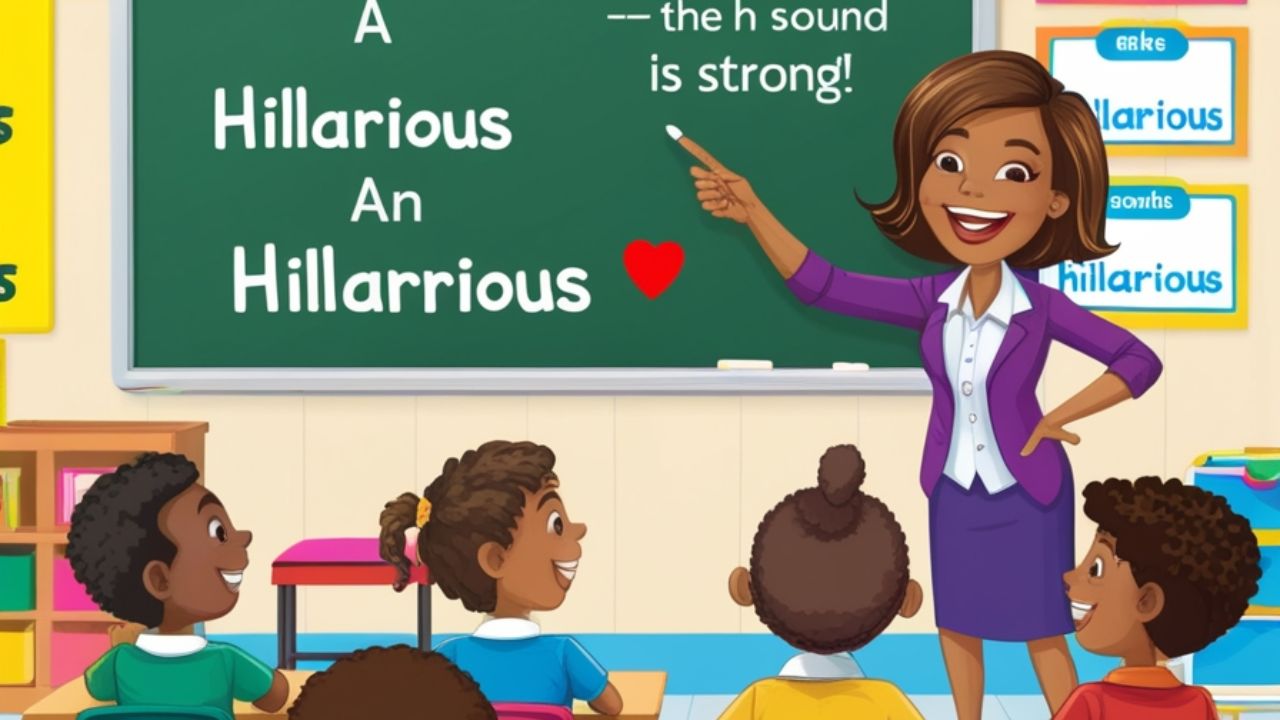A hilarious word begins with a clear h sound, so we use a before it. When a word starts with a vowel sound, we use an. This small rule helps sentences sound smooth and correct while speaking or writing in English every day.
Some words like hour or honest start with a silent h, so we say an hour or an honest person. The sound decides which article fits best, not the first letter. This makes English easier once you understand the rule.
Using a and an correctly helps you sound confident and clear. Listening to native speakers and reading aloud can help you learn faster. Practice slowly, pay attention to sounds, and soon, you’ll use these articles perfectly.
What Are Indefinite Articles?
Indefinite articles help us talk about things that are not specific. We use them when we mean any person, place, or thing. The words a and an are the main ones. They make sentences sound natural and complete when we describe something new.
We use a before words that start with a consonant sound and an before words that start with a vowel sound. For example, we say a dog and an apple. Learning these small rules helps improve clear and correct English.
- Indefinite articles are the words a and an, used to talk about non-specific things or people — not one particular item.
- We use a before words that begin with a consonant sound and an before words that start with a vowel sound.
- These small words make sentences sound natural and help speakers express ideas clearly when introducing something for the first time.
Why is this important?
Using the right article makes English sound smooth and clear. It helps others understand what you mean without confusion. Small words like a and an change how sentences feel and flow, making your speech and writing sound natural and correct.
Choosing the correct article also builds confidence when you speak or write. It shows that you understand grammar rules and care about clarity. With steady practice, you can easily pick the right word and make your English sound polished and fluent.
See also Minuet vs Minute: Grammar, Usage & Pronunciation Tips
The General Rule for ‘A’ and ‘An
- Use a before words that begin with a consonant sound, such as a cat, a car, or a hilarious joke.
- Use an before words that begin with a vowel sound, like an apple, an hour, or an umbrella.
- Always focus on the sound, not the spelling. The choice depends on how the word is pronounced, not just the first letter.
| Word | Correct Article | Explanation |
| “apple” | an apple | Starts with a vowel sound (‘a) |
| “banana” | a banana | Starts with a consonant sound (‘b’) |
| “hour” | an hour | ‘H’ is silent, so it starts with a vowel sound |
| “unicorn” | a unicorn | Starts with a ‘yysound (consonant) |
The Great ‘H’ Debate: When to Use ‘A’ or ‘AAnNow, let’s focus on the tricky part: words starting with “h.” This is where many people get confused, especially with words like “hilarious.”
The letter H can make English tricky because some words begin with a loud h sound and others stay silent. Words like hilarious and happy need a before them because we clearly hear the “h” when we speak them aloud.
Some H words stay silent, like honor or hour. These words begin with a vowel sound, so we use an before them. Listening carefully to how the word sounds helps decide which article fits best every time.
When to Use ‘A’:

- Use a before words that begin with a clear consonant sound, such as a dog, a book, or a hilarious movie.
- Choose a when the next word starts with a pronounced h, like a house or a history lesson.
- Remember, it’s the sound that matters — if you hear a consonant at the start, use a to make your sentence flow naturally.
When to Use ‘An:
- Use an before words that begin with a vowel sound, such as an apple, an egg, or an umbrella.
- Choose an when the word starts with a silent h, like an hour or an honest person.
- Always listen to the sound that follows — if it starts with a vowel sound, an is the correct article to use.
‘A Hilarious’ vs. ‘An Hilarious’ – Where’s the Confusion?
Many learners mix up a hilarious and an hilarious because they look almost the same. The word hilarious begins with a strong h sound, so the correct article is a. The sound decides the rule, not the first letter.
Some people make this error because they think every word starting with h needs an. The rule changes when the h is silent. Since the h in hilarious is spoken clearly, we always use a before it to stay grammatically correct.
Why is “An Hilarious” Incorrect?
The phrase an hilarious sounds wrong because the word hilarious starts with a clear h sound. We use a before words that begin with a consonant sound. The rule follows the way the word sounds, not how it looks.
People sometimes get mixed up because they see the letter h and think of words like hour or honor, where h stays silent. In hilarious, the h is spoken, so we must say a hilarious to keep the grammar correct.
- The phrase an hilarious is wrong because the word hilarious starts with a clear h sound, not a vowel sound.
- The rule says to use a before consonant sounds and an before vowel sounds.
- Since hilarious begins with a spoken h, the correct form is a hilarious, not an hilarious.
Crafting Sentences with “A Hilarious”
- Use a hilarious when describing something funny, like a hilarious joke or a hilarious movie. The sound of the h is strong, so a fits perfectly before it.
- Try sentences such as She told a hilarious story or He made a hilarious face. Each example shows the right way to use the article.
- Practice speaking with a hilarious in simple sentences. Listening to how the h sounds helps you remember the correct rule and improves clear English expression.
Why is “A Hilarious” Correct?
- The phrase a hilarious is correct because the word hilarious starts with a pronounced h sound, which is a consonant sound.
- The rule says to use a before consonant sounds and an before vowel sounds.
- Since the h in hilarious is clearly spoken, a is the right article to make the sentence sound smooth and grammatically correct.
The Misconception of ‘An Hilarious’
Many learners believe an hilarious sounds right because they focus on the letter h instead of the sound. The h in hilarious is not silent, so the word begins with a consonant sound. That is why a fits correctly.
This common confusion happens when people follow spelling instead of pronunciation. Words like hour or honor start with a silent h, so they use an. In hilarious, the sound of h is strong, making a hilarious the right form.
- Many people think an hilarious sounds right because they look at the letter h instead of listening to its sound. The h in hilarious is not silent, so it doesn’t follow the vowel rule.
- Confusion happens when learners copy patterns from words like honor or hour, where the h stays silent and needs an before it.
- Understanding pronunciation helps avoid this common mistake. Since the h in hilarious is spoken clearly, the correct form is always a hilarious.
Common Errors:
- Some learners say an hilarious or an history, but these are wrong because both words start with a spoken h sound, which needs a, not an.
- Others use a before vowel sounds, like a apple or a umbrella, which also breaks the rule.
- Always check the sound of the word — if it starts with a consonant sound, use a; if it starts with a vowel sound, use an.
Common Errors with H-Words
Many students make mistakes with H words because some start with a loud h sound and others stay silent. For example, we say a history book but an hour. Listening to the word helps to choose the correct article easily.
Some English words like honor or heir begin with a silent h, so they use an. Others, such as happy or hero, start with a clear h sound and need a. Knowing these sounds improves both speaking and writing.
| Word | Correct Article | Explanation |
| “historic” | a historic | “H” is pronounced (hard “h”) |
| “honor” | an honor | “H” is silent |
| “herb” | a herb | “H” is pronounced (hard “h”) |
| “hour” | an hour | “H” is silent |
The Role of Sound in Article Selection

- The sound of the word decides whether to use a or an, not the first letter. It depends on how the word is spoken, not how it looks in writing.
- Words beginning with a vowel sound use an, while words beginning with a consonant sound use a. This keeps speech natural and smooth.
- Listening carefully to pronunciation helps in correct article use. When the sound starts with a vowel, choose an; when it starts with a consonant, choose a.
Quick Recap of Sound-Driven Rules:
- Use a before words that begin with a consonant sound, like a cat, a dog, or a hilarious story.
- Use an before words that begin with a vowel sound, like an apple, an hour, or an idea.
- Always focus on the sound you hear — pronunciation decides the correct article, not the first letter of the word.
The ‘Exception’ to the Rule: Silent H
As we mentioned earlier, some words start with a silent “h,” and in these cases, the rule for using “an” applies. This is a common exception to the usual rule for “a” and “an.”
Examples of Silent H:
- An hour – The h in hour is silent, so the word starts with a vowel sound, making an the correct article.
- An honor – The h is not spoken in honor, so we say an honor, not a honor.
- An heir – The word heir begins with a silent h, so it sounds like it starts with a vowel, and we use an before it.
The Importance of Pronunciation in Article Selection
Correct pronunciation is central to using articles properly in English. Mispronouncing words or ignoring the rules for silent letters can lead to incorrect article choices.
Practical Tips for Mastering Article Usage:
- Listen carefully to how words sound. Focus on pronunciation instead of spelling to decide whether to use a or an.
- Practice speaking simple sentences aloud. This helps you remember which article fits naturally before each word.
- Read and observe native speakers. Notice how they use a and an in everyday speech to improve your grammar and fluency.
See also Finger in the Dike Meaning & Story Explained Simply
Conclusion:
Learning how to use a and an helps make English clear and smooth. The sound of the first letter decides which one to use. With little practice, choosing the right word becomes simple and feels natural while speaking or writing.
Understanding grammar rules builds confidence and improves fluency. Listening to how words sound and reading often will make you better each day. Small steps like this turn English learning into an easy and enjoyable experience for everyone.
FAQs
Do you use a or an before the h word?
Use “a” before an aspirated “h” (a hotel) and “an” before a silent “h” (an hour).
Which is correct, a heroic or an heroic?
Both are correct, but “a heroic” is preferred in modern English; “an heroic” is older usage.
Is it an horrific or a horrific?
Both appear, but “a horrific” is grammatically standard today; “an horrific” is older or British style.
Do you use a or an before unusual?
Use “an” before “unusual” because it starts with a vowel sound.

Join Bibcia on a journey to master English grammar. Discover easy lessons, writing tips, and practical examples designed to make learning grammar simple and effective.










